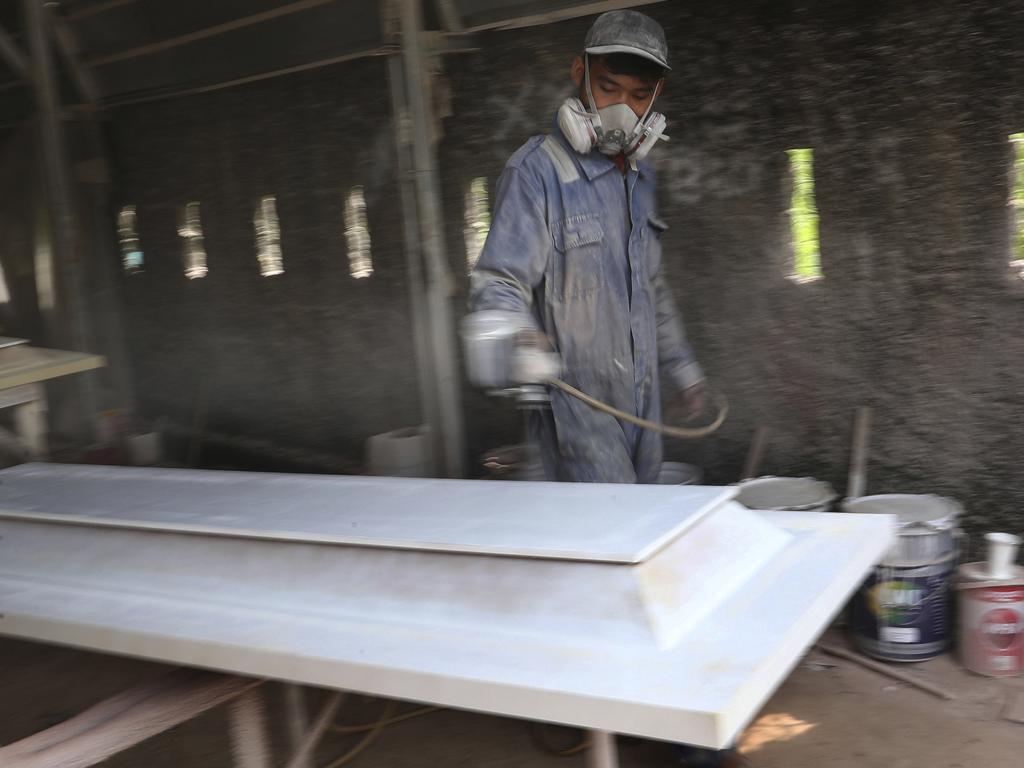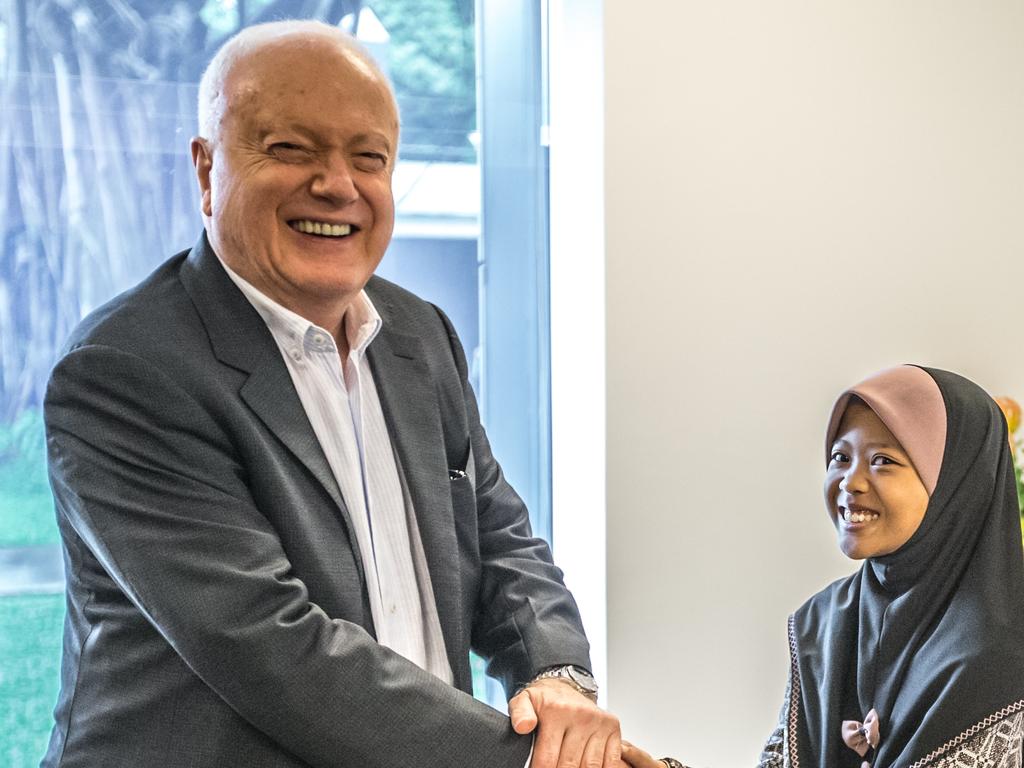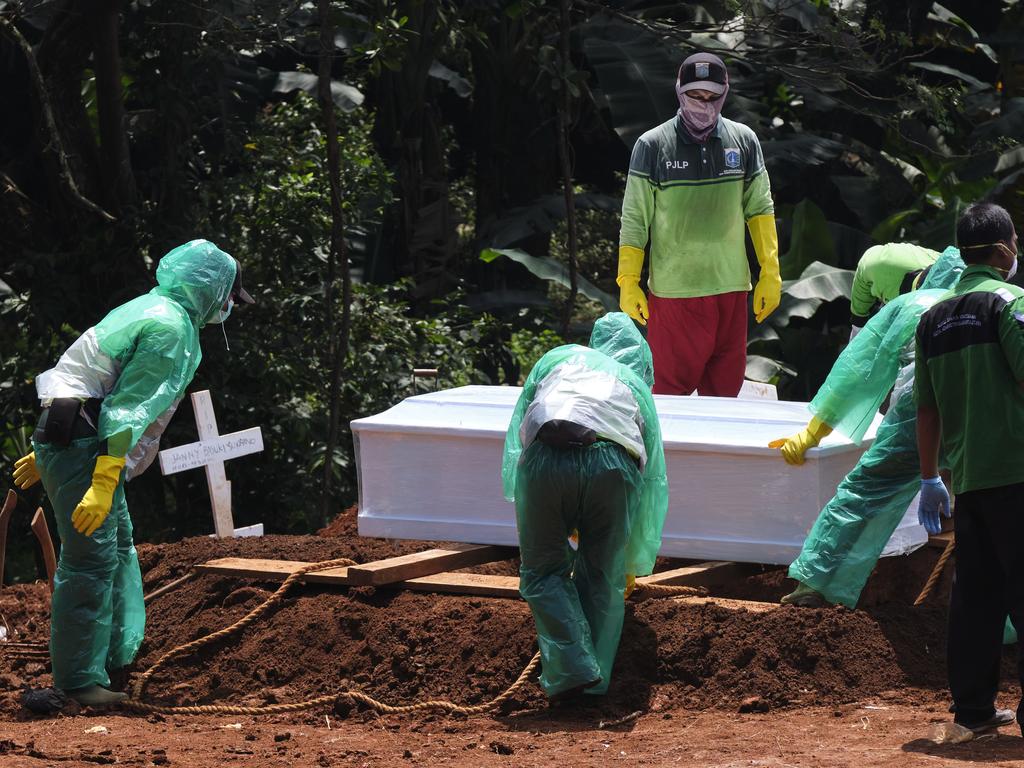Coronavirus: Canberra ‘condescending’ over withdrawal of ambassador to Indonesia
Indonesia’s Deputy Foreign Minister has accused the Australian government of being ‘condescending’ following the withdrawal of Australia’s ambassador.

Indonesia’s Deputy Foreign Minister has accused the Australian government of being “condescending” and a poor neighbour following the withdrawal last weekend of Australia’s ambassador to Jakarta for health reasons.
Mahendra Siregar, former ambassador to the US and a rising star in President Joko Widodo’s second-term cabinet, told The Australian the Indonesian foreign ministry was “disappointed” at Canberra’s failure to correct media “spin” that ambassador Gary Quinlan had been recalled because of Indonesia’s inability to navigate the public health crisis.
“From the foreign ministry’s perspective, we understood the situation and that (the recall) was for health reasons, but of course we’re not that happy with developments. Everybody is silent in Canberra,” Mr Siregar said. “This is a global pandemic and I think everybody understands we are supposed to be in this situation altogether and support each other. Nothing less than that is expected.”
Mr Quinlan, a 69-year-old veteran diplomat with underlying health issues, left Jakarta following a global review of the Department of Foreign Affairs and Trade’s staffing profile but will continue to serve as ambassador remotely from Canberra.
Australia’s largest overseas mission is now operating on a skeleton staff under deputy ambassador and charges d’affaires Allaster Cox. A brief DFAT statement last week made clear Mr Quinlan had been temporarily ordered back to Canberra as a “precautionary measure”. But both the embassy and DFAT have been issuing increasingly urgent warnings to Australians in recent weeks to leave Indonesia “while you still can” because of the country’s poor standard of healthcare.
In that context, the decision to relocate the ambassador was widely interpreted as a lack of faith in Indonesia’s readiness for what researchers both inside and outside the country estimate will be a massive escalation of cases, and as many as 120,000 deaths, by the end of May.
Mr Quinlan wrote to an Indonesian parliamentary committee on foreign relations this week, explaining he was “personally very reluctant to leave Indonesia, even if just temporarily” but a number of pre-existing health factors “place me in the high-risk category for an acute case of COVID-19”.
Mr Siregar would not say whether Jakarta had asked Canberra to issue further clarification on Mr Quinlan’s withdrawal but said that, in any case, it was now “too late, the mess has been done”.
“At least for a start they could have been more understanding and not been condescending.”
The Indonesian government has been criticised for its sluggish response to the pandemic and for putting economic concerns ahead of public health.
As Indonesia’s nearest neighbours were imposing border restrictions and conducting mass testing, the government was attempting to market the country as a virus-free destination until late February.
The country now has 5136 confirmed COVID-19 cases after a sharp rise in recent days following the belated distribution of hundreds of thousands of PCR (polymerase chain reaction) test kits.
But testing is still low — about 123 per million people — and it still has one of the highest mortality rates (9.1 per cent), a sign that infection rates are far higher than official figures.
Mr Siregar acknowledged Indonesia had acted late to address the COVID-19 pandemic but added “there was no country in the world that was ready for this”.
He also addressed the country’s desperate shortage of ventilators — less than 9000 for a country of 267 million people — saying his government was trying hard to boost its stocks, but that all other nations were doing similarly.
“Testing is also now being stepped up and we now have 50 labs” capable of processing PCR tests, he said.
“We’re a developing country and of course the issue of human capital and development is our priority but having said that, there is no other country in the world that can say they have allocated 20 per cent of their national budget on education and 5 per cent for health services and obviously we are on the right track”.
Asked if Canberra’s failure to further clarify the medical reasons for Mr Quinlan’s temporary recall had hurt the bilateral relationship — one Australia considers critical to regional security and prosperity — Mr Siregar said: “This is not the first time and it won’t be the last time.
“As wise people say, “You don’t get to choose your neighbour.”







